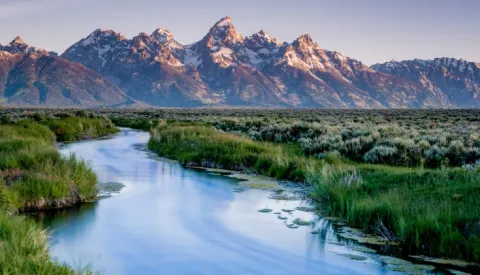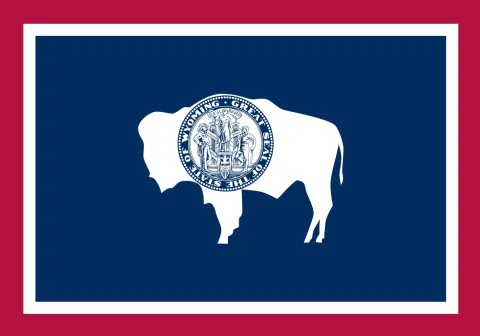
Wyoming, known for its breathtaking landscapes and vast open spaces, offers a unique retirement experience. For those considering the state as their retirement destination, several factors, such as overall quality of life, cost of living, crime and safety, access to quality healthcare, weather, and culture, play pivotal roles in the decision-making process. This article explores these aspects, comparing them to the national average to provide a clear perspective on living in Wyoming during retirement.
Wyoming boasts a high quality of life, characterized by a serene environment, low population density, and abundant outdoor activities. The state's natural beauty, including national parks like Yellowstone and Grand Teton, offers retirees ample opportunities for hiking, fishing, and wildlife observation. Compared to the national average, Wyoming's quality of life is enhanced by its clean air, low traffic congestion, and strong sense of community.
However, the state's rural nature can be a double-edged sword. While it provides peace and tranquility, it may also mean fewer amenities and entertainment options than more urbanized states. Retirees who thrive on a quiet, nature-oriented lifestyle will likely find Wyoming's quality of life appealing, while those seeking vibrant city life may find it lacking.
The cost of living in Wyoming is generally lower than the national average. The state's lack of state income tax is a significant financial benefit for retirees, as it can lead to considerable savings. Property taxes are also relatively low, making homeownership more affordable.
However, the cost of goods and services can be higher in some areas due to the state's remote location and smaller market size. Housing costs, in particular, can vary significantly depending on the region, with areas near popular tourist destinations being more expensive. On the whole, Wyoming offers a cost-effective retirement option compared to many other states, especially for those who own their homes and live on a fixed income.
Wyoming is known for its low crime rates, making it one of the safer states in the U.S. The state's violent crime rate is significantly lower than the national average, and property crime rates are also comparatively low. This safety contributes to a sense of security for retirees, who can enjoy a peaceful lifestyle with minimal concerns about crime.
The close-knit communities in many parts of Wyoming further enhance the feeling of safety, as neighbors often look out for one another. However, as with any state, it's essential to research specific areas, as crime rates can vary between urban and rural locations.
Access to quality healthcare is a crucial consideration for retirees, and Wyoming presents a mixed picture in this regard. The state has a limited number of healthcare facilities and specialists, which can be a drawback for those with specific medical needs. While Wyoming's healthcare system offers good quality care, the rural nature of the state means that residents may need to travel long distances to access certain services or specialists.
Compared to the national average, Wyoming's healthcare access is below average, particularly in rural areas. However, some larger towns and cities, such as Cheyenne and Casper, have well-equipped medical facilities and a range of healthcare providers. Retirees should consider their healthcare needs and proximity to medical facilities when choosing a location within the state.
Wyoming is consistently ranked among the states with the lowest overall tax burden in the United States. This is primarily due to the absence of a state income tax, which significantly reduces the tax load on residents. Additionally, Wyoming benefits from relatively low property taxes and no state-level excise taxes, further enhancing its tax-friendly environment.
When compared to other states, Wyoming's tax burden is among the lightest, making it an attractive option for individuals and businesses seeking to minimize tax expenses. The state’s reliance on revenues from natural resources, particularly energy production, allows it to maintain low tax rates while still funding public services. As a result, Wyoming stands out as a fiscally favorable state, especially when contrasted with states that have higher income and property taxes.
Wyoming's culture is heavily influenced by its Western heritage, with a strong emphasis on outdoor activities, cowboy traditions, and a rugged, independent spirit. The state's low population density fosters a tight-knit community atmosphere, where people often know their neighbors and participate in local events and activities.
Compared to the national average, Wyoming's cultural scene is more limited in terms of arts, entertainment, and dining options. However, the state's unique cultural heritage offers a rich tapestry of experiences, from rodeos and ranching to Native American history and Western art. Retirees who appreciate a slower pace of life and a strong sense of community may find Wyoming's culture a perfect fit.
Wyoming's weather varies significantly depending on the region, but it generally features cold winters and mild summers. The state experiences a semi-arid to arid climate, with low humidity and ample sunshine. Winters can be harsh, with heavy snowfall and cold temperatures, especially in the mountainous areas. Summers, on the other hand, are usually pleasant, with warm days and cool nights.
Compared to the national average, Wyoming's weather can be challenging for those unaccustomed to cold climates. However, the state's low humidity and sunny days can be a pleasant change for many. Retirees who enjoy winter sports or outdoor activities may find Wyoming's climate appealing, while those who prefer milder weather might find it less suitable.
Retiring in Wyoming offers a blend of natural beauty, affordability, safety, and a unique cultural experience. While the state may have some limitations, such as healthcare access and a less diverse cultural scene, its strengths in quality of life, cost of living, and low crime rates make it an attractive option for many retirees. As with any retirement destination, it's crucial to consider personal preferences and needs to determine if Wyoming is the right place to enjoy one's golden years.




